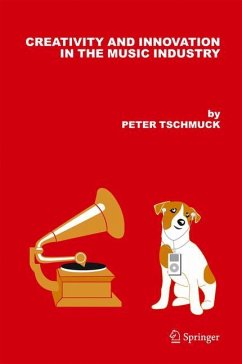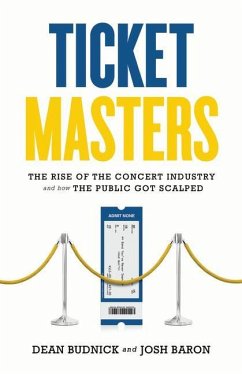
The Economics of the Popular Music Industry
Modelling from Microeconomic Theory and Industrial Organization
Versandkostenfrei!
Versandfertig in 6-10 Tagen
98,99 €
inkl. MwSt.
Weitere Ausgaben:

PAYBACK Punkte
49 °P sammeln!
This book uses economic theory to explain how consumers and producers have responded to major changes in the music industry. Byun examines the important role of technology in changing its structure, particularly as new methods of creating and accessing music prove to be a double-edged sword for creators and producers. This second edition includes new information about concert attendance and live performance in the COVID era and what followed, as well as the resultant economic impacts on the industry.Throughout the book, Byun questions how the business of music affects creativity and the extent...
This book uses economic theory to explain how consumers and producers have responded to major changes in the music industry. Byun examines the important role of technology in changing its structure, particularly as new methods of creating and accessing music prove to be a double-edged sword for creators and producers. This second edition includes new information about concert attendance and live performance in the COVID era and what followed, as well as the resultant economic impacts on the industry.
Throughout the book, Byun questions how the business of music affects creativity and the extent to which this impacts the creative output of the individual artist. Chapters also address copyright enforcement and online piracy. This is an approachable resource for economists interested in the music industry as well as business and music majors studying the ways in which technology can impact a creative process.
Throughout the book, Byun questions how the business of music affects creativity and the extent to which this impacts the creative output of the individual artist. Chapters also address copyright enforcement and online piracy. This is an approachable resource for economists interested in the music industry as well as business and music majors studying the ways in which technology can impact a creative process.














